Trash From All Over the Country Winds Up in Uniontown
A hub of civil rights organizing takes on environmental justice
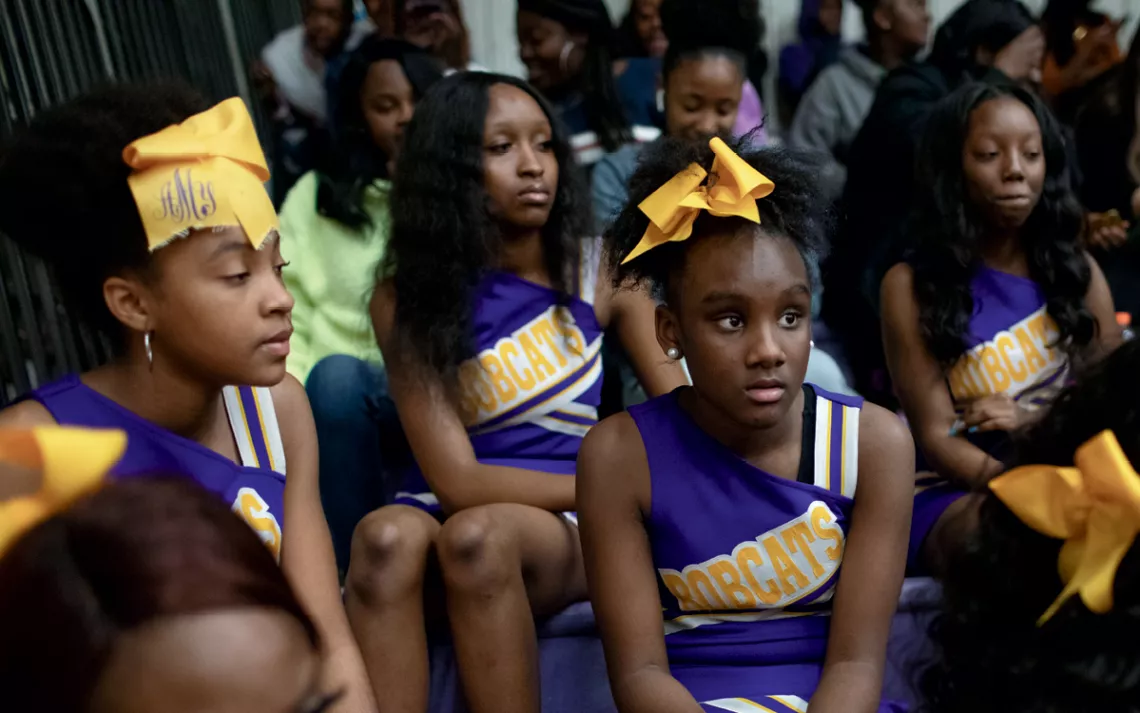
Cheerleaders for the Bobcats at Robert C. Hatch High School watch a basketball game. | Photos by Bess Adler
In Uniontown, Alabama, a hamlet of Perry County, there are glamorous pastors' lunches, with congregants dressed nattily in plumed hats and tailored suits. There are seven churches in this community of around 2,000. At sunset, young people gather on outdoor basketball courts to scrimmage and socialize. On game nights, the entire town shows up to cheer on the varsity basketball team at Robert C. Hatch High School, which has won 10 state high school championships. It's the kind of community where neighbors regularly drop in to check on one another, especially older residents who need help and companionship.
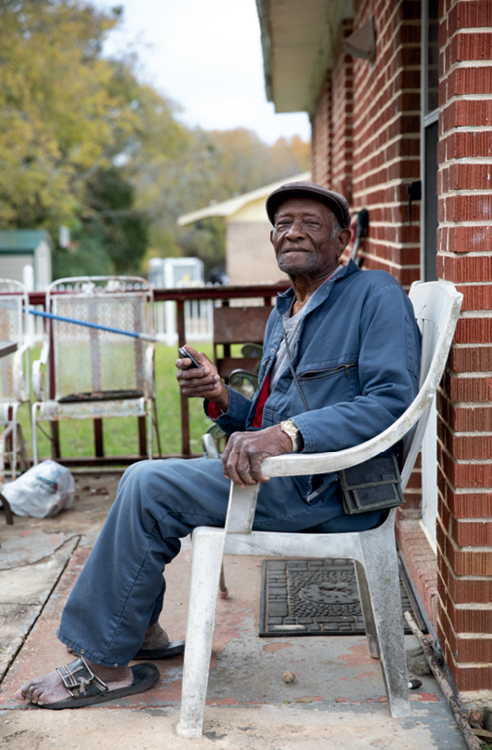
Deacon Samuel Woods lives near a sewage-treatment lagoon that has been spilling waste into Uniontown's waterways for over a decade.
The region where Uniontown is located is nicknamed the Black Belt, originally because of its fertile land and later in reference to its history of slavery and its large number of Black residents. During the civil rights movement, Perry County was one of the many hubs of grassroots organizing that emerged along the Black Belt.
Alex Jones, born and raised in Uniontown, remembers Sunday dinners and spirited conversations with his cousin Juanita; her husband, Ralph Abernathy; Coretta Scott King; and Martin Luther King Jr. when Jones was attending Alabama State in the 1960s. The Selma to Montgomery Marches began at the Edmund Pettus Bridge, just 30 miles east of Uniontown.
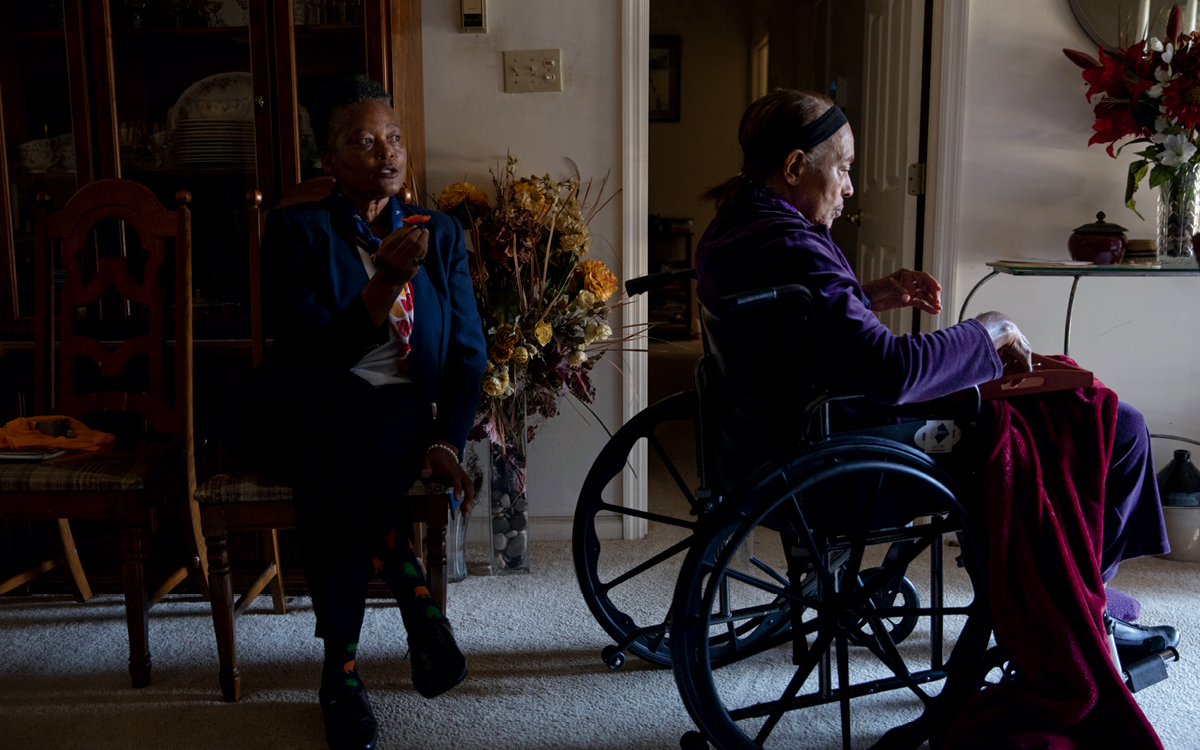 Sally McGee, the treasurer for Black Belt Citizens Fighting for Health and Justice, visits Carrie McFadden to help her with housework.
Sally McGee, the treasurer for Black Belt Citizens Fighting for Health and Justice, visits Carrie McFadden to help her with housework.
Members of Jones's family still own around 3,000 acres of Black Belt farmland in and around Uniontown, where in autumn, persimmon trees grow heavy with fat orange fruit. On the property, a cemetery with dozens of headstones traces his lineage back to his great-grandfather Alexander Jones, who was born into slavery.
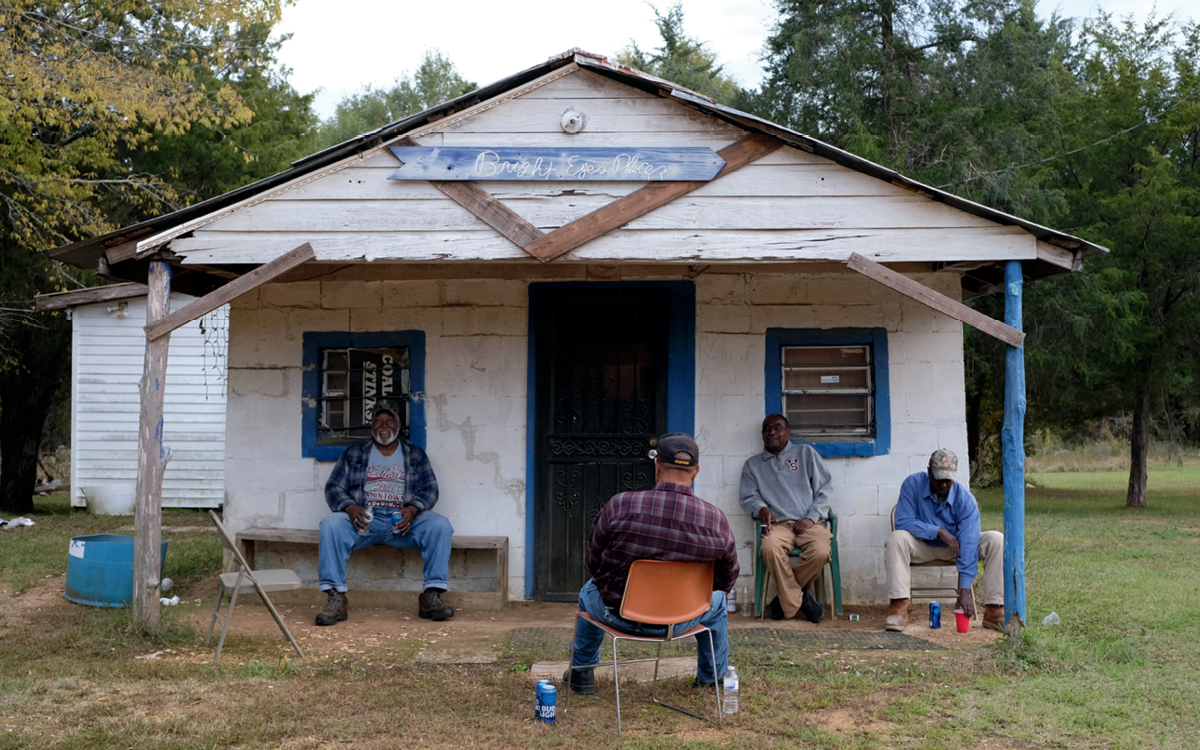 William Gibbs, Joe Williams, Otis Jackson, and Jonathan Coleman (from left) spend time together at Bright Eyes, where BBC first formed.
William Gibbs, Joe Williams, Otis Jackson, and Jonathan Coleman (from left) spend time together at Bright Eyes, where BBC first formed.
In 2005, a group of residents who met regularly at Bright Eyes, a juke joint on the outskirts of Uniontown, began discussing what to do about a big issue facing the community: A company from out of town wanted to turn some former farmland into a landfill that would bring in trash from other states.
 Teenagers play a game of pickup basketball.
Teenagers play a game of pickup basketball.
Alabama granted a permit to establish the landfill despite local opposition. Arrowhead Landfill then received permission from state officials to begin accepting coal ash—including from the cleanup of the 2008 coal ash spill in Kingston, Tennessee, the largest in US history. Over the next few years, Uniontown became home to 4 million tons of coal ash. By 2012, Arrowhead was among the three largest landfills in the state, accepting waste from 33 other states. Residents near the site reported a rise in asthma and cancer along with an unmistakable stench. 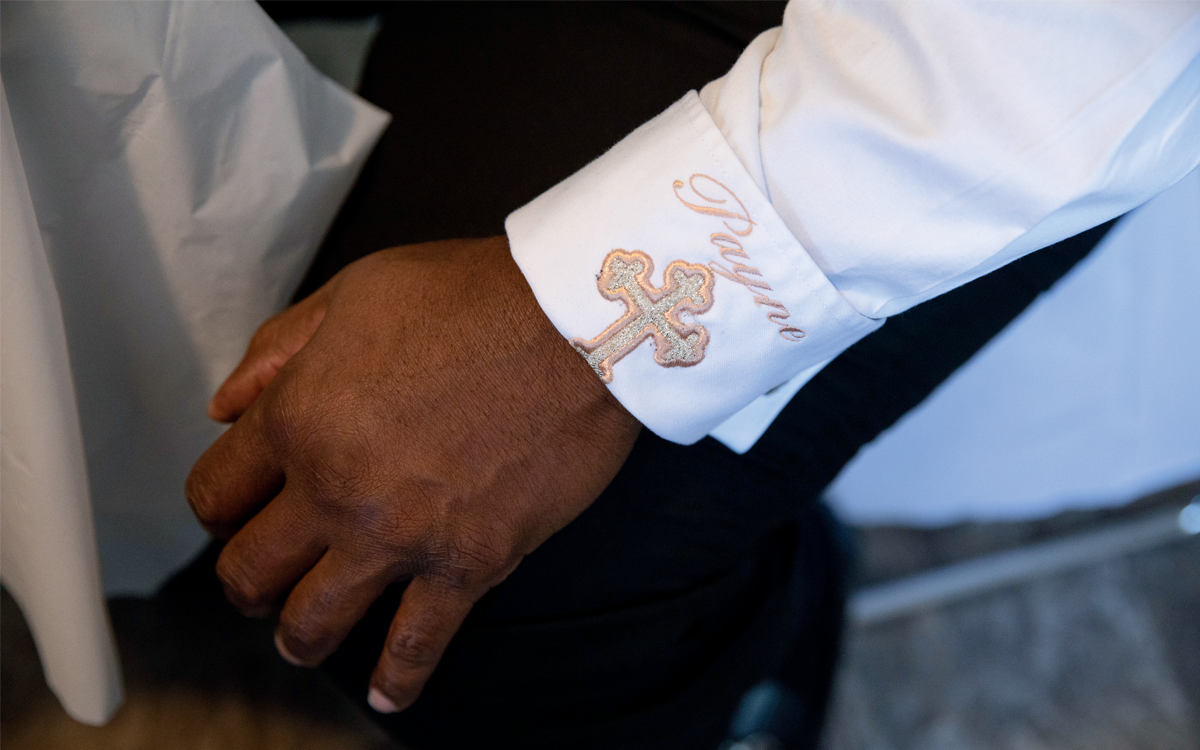 Pastor Payne travels several hours to Uniontown to preach on Sundays.
Pastor Payne travels several hours to Uniontown to preach on Sundays.
Four years later, Arrowhead filed a $30 million defamation lawsuit against the group that had begun at Bright Eyes, now called Black Belt Citizens Fighting for Health and Justice, or BBC for short. Four members of BBC—Esther Calhoun, Benjamin Eaton, Ellis Long, and Mary Schaeffer—were named in the suit, which was based, in part, on statements posted to BBC's Facebook page. The average household income in Uniontown at the time was about $14,000 a year.
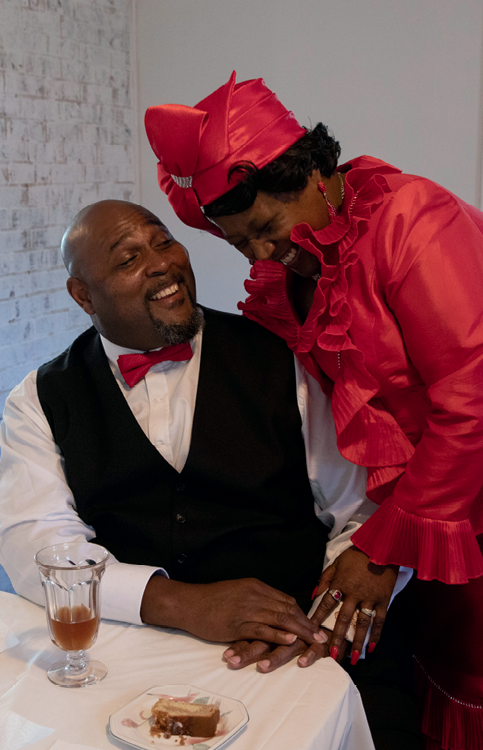
Pastor Demetrius Payne and his wife, Shirley Payne, attend a pastors' aid event called Women in Hats, Men in Bowties.
With help from the ACLU, the BBC members successfully defended themselves in court, but the suit had a chilling effect; according to Eaton, BBC's president, it left some members more tentative about taking action. Meanwhile, a civil rights complaint filed by Uniontown residents against the state of Alabama for approving the landfill was denied by the Trump administration's EPA.
At the same time, Uniontown faced another environmental disaster. The town's sewage system had long passed the breaking point. In 2012, $4.8 million in grants and loans had been awarded by the US Department of Agriculture to upgrade the system, yet Sentell Engineering, the firm placed in charge of the project, mismanaged the plans, and the issues persisted. Reports described sewage flowing through Uniontown's waterways. US representative Terri Sewell, who helped secure the USDA funding, openly criticized Sentell and the officials who had signed off on the deal.
In 2018, Eaton was elected county commissioner of Perry County District 5, winning against an incumbent candidate who had been in the position for 12 years. It was a huge victory for BBC, and the community's prospects seemed to improve even more in 2018 when the city received a $23.4 million grant to tackle the sewage problem again. Yet the city of Uniontown rehired Sentell to manage the contract, and Eaton and the other members of BBC fear that the money will be mishandled.
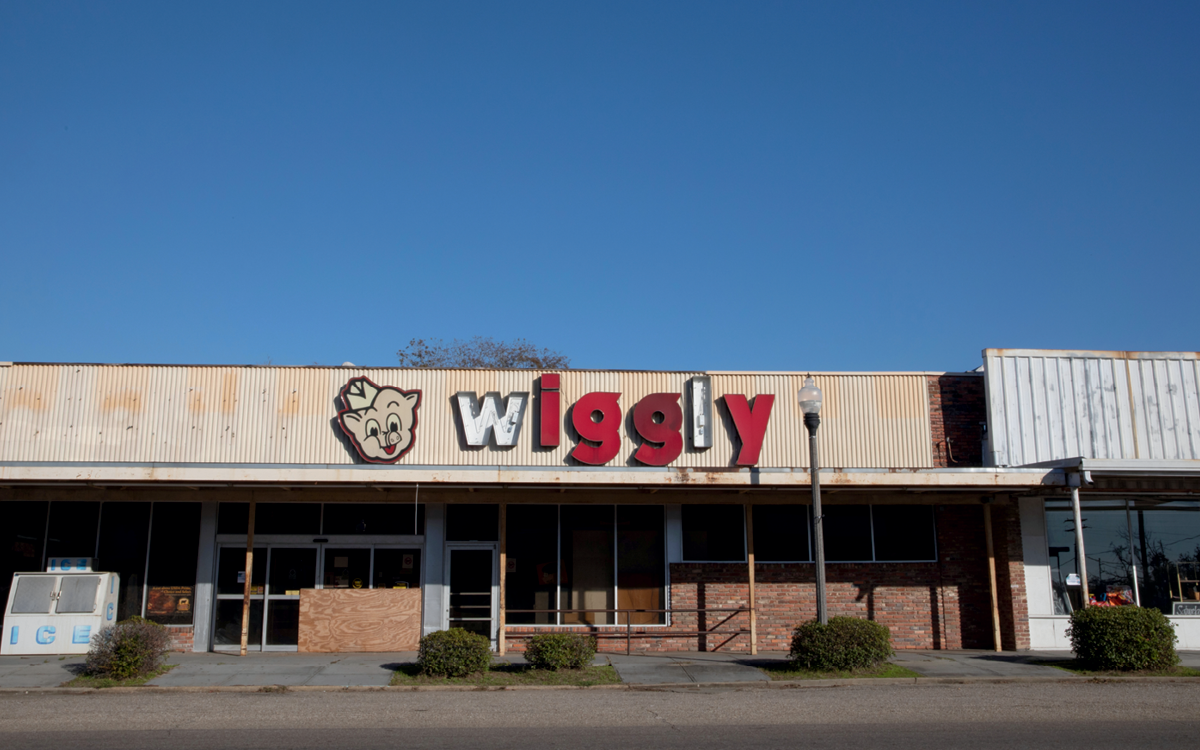
Uniontown's problems with pollution have coincided with the closure of several businesses, including its sole grocery store, Piggly Wiggly.
In spring 2020, the novel coronavirus swept the country. BBC refocused its efforts on distributing masks and water to the community, and fortunately, cases in the area stayed relatively low.
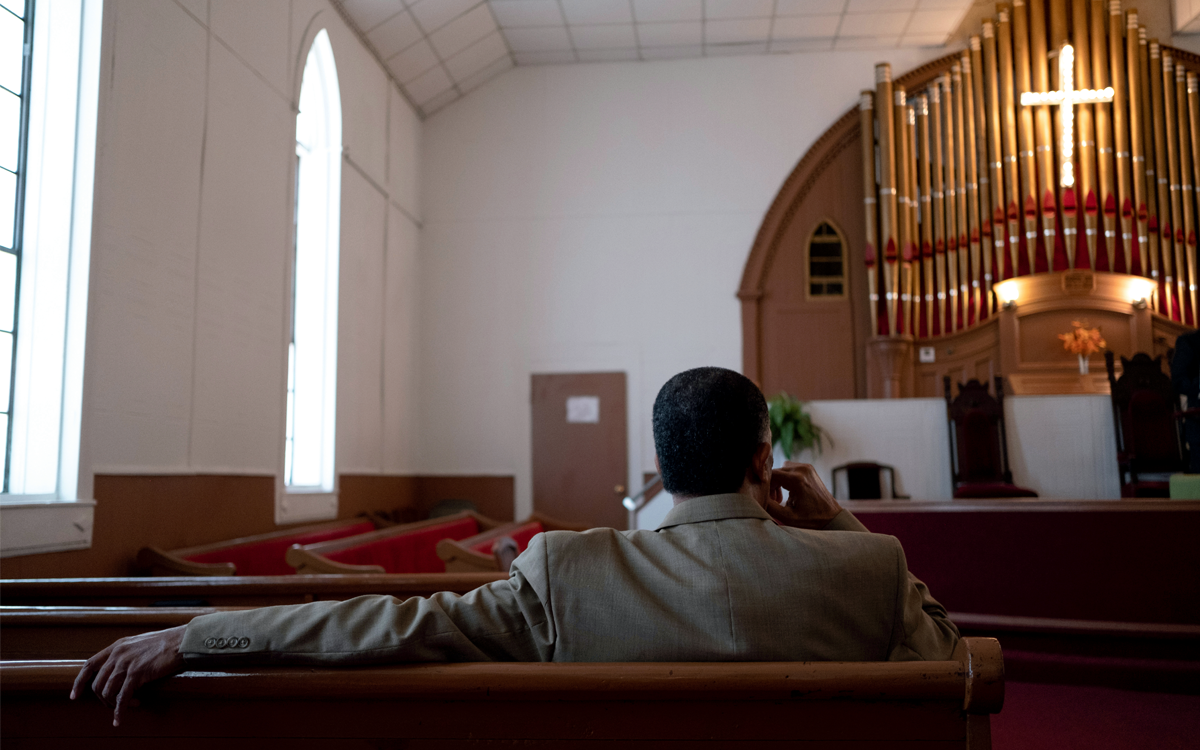
A parishioner at Quinn Chapel AME Church in Uniontown, Alabama, where residents have been fighting against a coal ash waste dump.
That August, Uniontown elected Christopher Jones as its first new mayor in more than a decade, another cause for hope. Jones seemed sympathetic to BBC's concerns about the sewage crisis, and Eaton hoped he might be able to shake up the members of the local water board to make room for experts who were open to new solutions. "That is not right for a little small Black community," Eaton said. "It's not right, so we are sort of looking for hope, and we have faith that there is hope."
This article appeared in the March/April edition with the headline "A Town Worth Fighting For."
This article was funded in part by the Sierra Club’s Beyond Coal campaign.
 The Magazine of The Sierra Club
The Magazine of The Sierra Club



